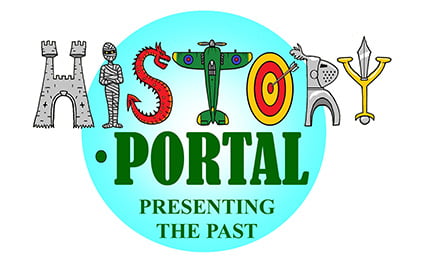
Every school that puts on a History Portal Musical used to use a CD with both with backing track and show tracks. Today we all accept this as part of our lives, even though we have now moved on to downloading our songs.
However, until November 1877, when Thomas Edison invented the Phonograph, you couldn’t hear recorded music, you had to hear it live.
Once the breakthrough had happened and it was shown that music could be recorded, others took up the challenge and very quickly Alexander Graham Bell’s Volta Laboratory launched their graphophone, a machine that used wax-coated cardboard cylinders with a cutting stylus. Then just 10 years after Edison’s first machine, Emile Berliner, a German-American inventor, came up with the vertical-cut flat disc, which he called a gramophone record.
Through the years the simple gramophone developed with many improvements until in the 1980s it became obsolete and we started using cassette tapes. In fact, our first schools musical “The Monster of the Maze” was supplied with a cassette tape, as were all our other ones such as “The Boy King” that we published at the time.
However, technology never stays still and new formats were developed until today, when CDs have been overtaken by downloads, with the result that today you can go to our web site www.history-portal.com and download a complete musical, music and script. The music can then be played from a computer or mobile, and the scripts read by the children on their mobiles.
The result is that the simple disc as we know it, is now an historical item. Nevertheless, we shouldn’t forget that the technology we use today is a result of the original ideas developed by Thomas Edison for his original Phonograph nearly 220 years ago.
I can’t wait to see what will come next.
Isn’t history fun!
10 questions to discuss:
- What technological breakthrough in November 1877 revolutionized the way music was heard?
- Who was the inventor credited with the breakthrough in November 1877, and what device did they create?
- What were the early recording mediums used in the history of recorded music before the invention of the gramophone record?
- Who invented the graphophone, and what were its primary features?
- How did Emile Berliner contribute to the evolution of recorded music, and what was his invention called?
- In what decade did the gramophone record become obsolete, and what replaced it as the dominant music format?
- How did technology continue to evolve after the era of cassette tapes?
- What is the current trend in distributing and accessing musical content, as described in the passage?
- How has the advent of digital downloads impacted the distribution of musical content compared to CDs?
- Reflecting on the historical progression of recorded music, what do you this will come next?
To learn more about Thomas Edison click on
Also the history of the gramophone

